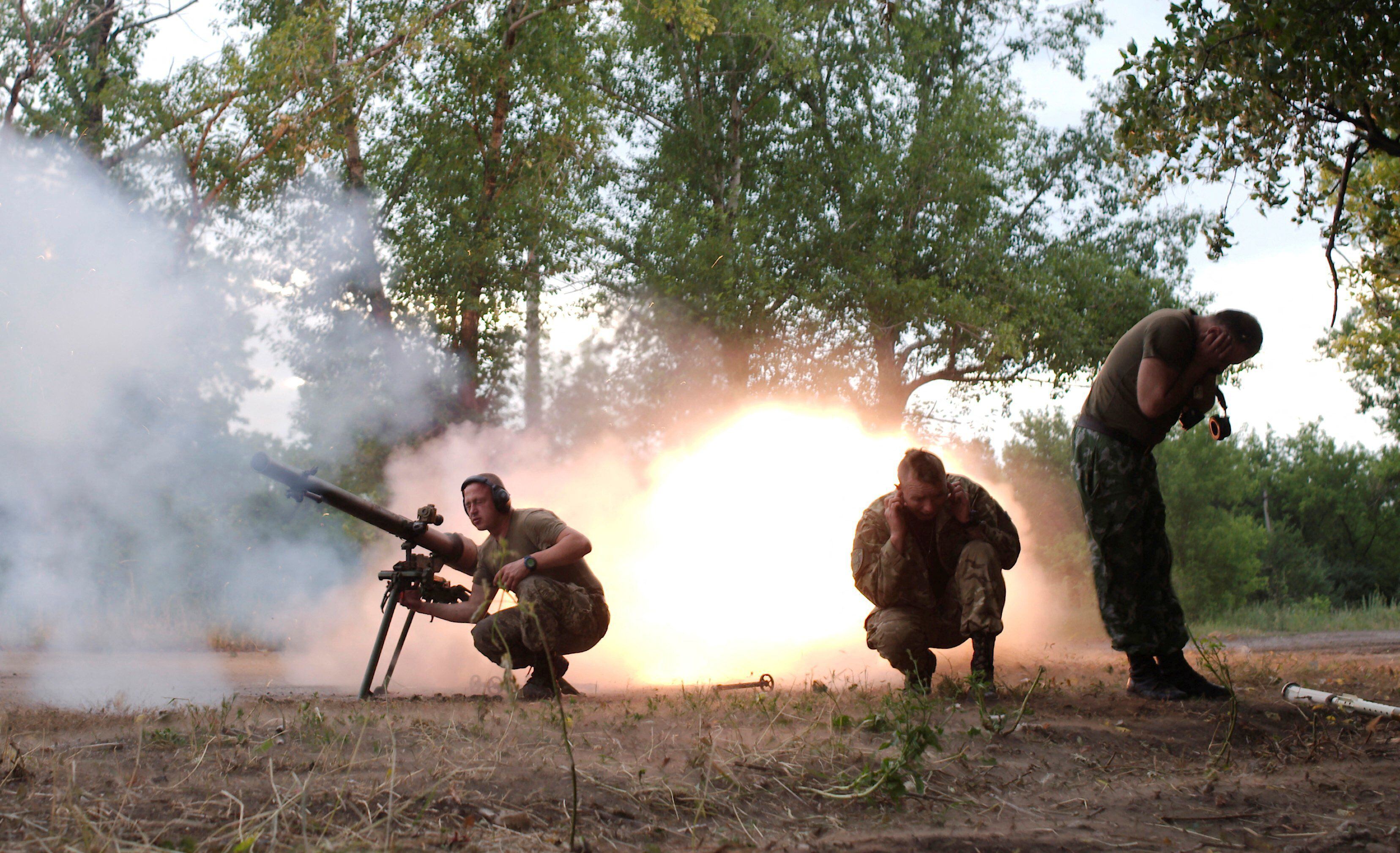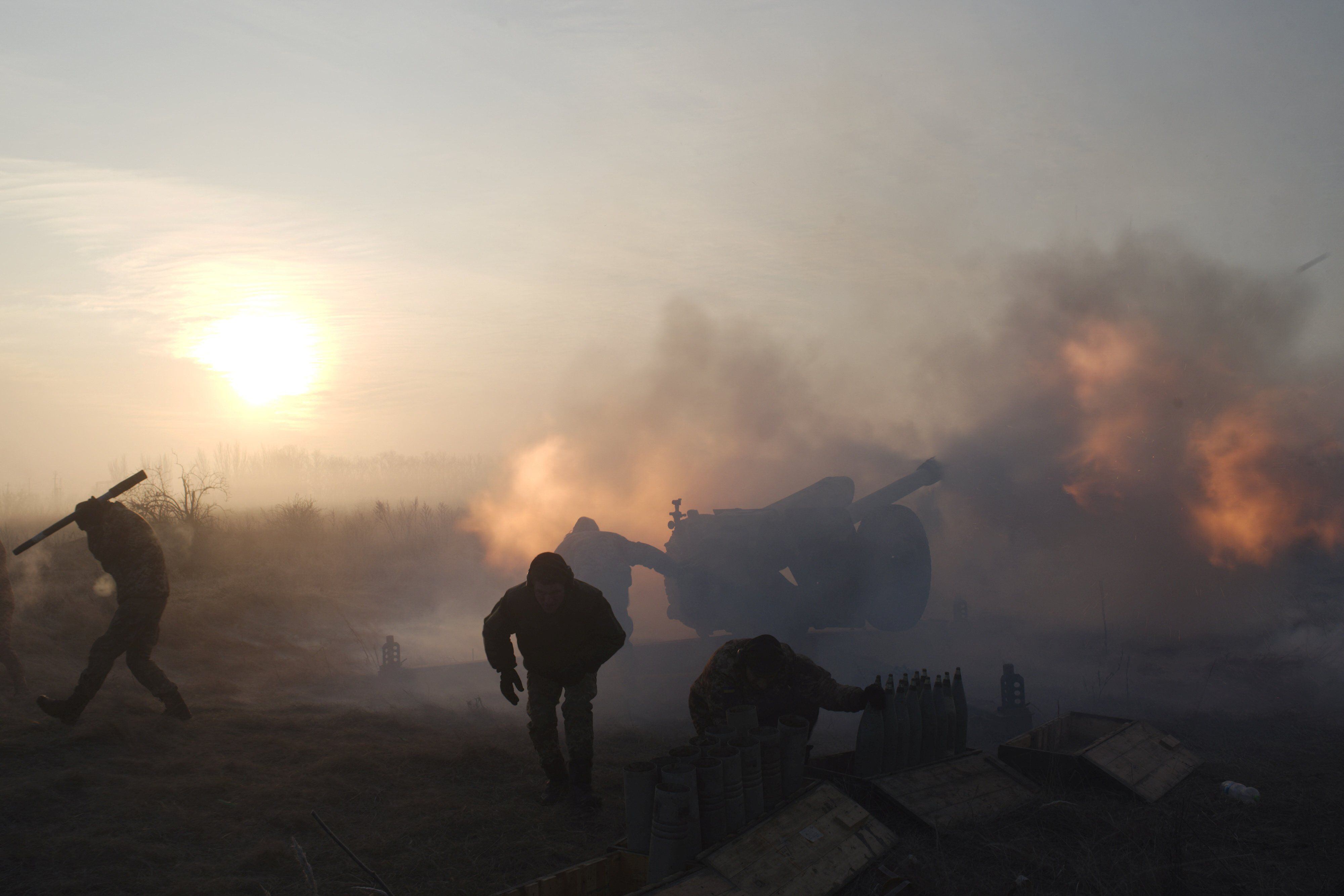The interest of Russia through the Donbas ukrainian. One of the first milestones was marked in 2014 after the massive Euromaidan protests, and the fall of the pro-Russian president, Viktor Yanukovych. So the Donestk region declared itself independent, a path that also tried to transit Mariupol and Lugansk.
Moscow, although it has denied it, supported the secession attempt.
The conflict now becomes more relevant: with the start of the Russian invasion of Ukrainethe mandatary Vladimir Putin declared to Donestk and Lugansk as independent republics; And now, as warned by the Kremlin a week ago, is about to attack these areas with the aim of controlling them.
Why is Putin so interested in Donbas?
For the internationalist Mayte Dongothere are three main reasons. The first is economic. “There is an industry there that produces steel and coal. That interests Moscow because it does not have that capacity and because these products are essential to produce others. In fact, they are also key to war”.
Putin also has political interests. Dongo says that the plan would not only be to expand Russian territory by annexing the region, but also propagandistic. “It is very likely that I won the war in that area. There have been separatists there since 2014 and much of it is already controlled, which gives it more chances of being victorious.”.
ABC adds: “The annexation of Donbas would serve Putin to show public opinion in his country at least one achievement”.
Finally, the region interests him because, with more Russian-speakers and pro-Russians, the arguments he used to justify starting the war would make sense, says Dongo.
The Spanish portal explains that, according to the Minsk agreements of 2015, Kyiv and Moscow they got engaged “for Donbas to have autonomous governments while still belonging to Ukraine”. However, to explain the recent invasion, Russia argued that it was imperative to take action in the area because a “genocide” from “the population of Russian origin”.
What can you expect from the offense?
For Dongo, one would have to assume that this attack will be “faster” to “not continue compromising the country’s resources”. “Remember that the Russian economy is not that strong and the war is affecting it a lot. Taking the region quickly would be a victory”.
“And don’t forget the Battle of Berlin [de 1945, durante la Segunda Guerra Mundial, cuando los soviéticos golpearon y sometieron a la capital nazi]. This took place from mid-April to May 2. Perhaps Russia wants to obtain these territories on similar dates as a symbolic act”.
ABCfor his part, notes that Vladimir Putin’s objective is “secure a territorial corridor to the Crimean peninsula, which is already Russian”.
The ‘Russification’
Putin’s war is sustained in “decades of russification”, writes ABC. The donbas has the “Ukraine’s highest population density after kyiv”, with the vast majority having close ties to Russia.
In that way?
The demographics of Donbas shrank because, in the WWII“was the target of Hitler’s Army Operation Barbarossa”, and for the “the successive ‘ethnic cleansings’ carried out by the Soviet Union”, notes ABC.
To replace the workforce of the area “heavily industrialized” Since the 19th century, Moscow began to send settlers. Hence the languagepredominantly Russian”.
However, the Soviet plans did not go well. So much so that, after the fall of the USSR“in 1991, more than 80 percent of the population of Donbas voted for the creation of the Republic of Ukraine”.
ABC reminds:
“The following decade was especially hard for the eastern region of the country. Industries closed, the economic crisis deepened, oligarchic mafias emerged, and the population largely blamed the central government in kyiv, which was accused of being turned only towards the West.”.
It is the time when the self-defense militias supported by Moscow, and in 2004 a referendum which makes it clear that the region wants to separate from Ukraine. Washington and Kyiv do not recognize this query, they brand it as illegal, and a civil war.
In 2015, after adding 13,000 deaths and “million and a half displaced”, a peace agreement is reached that the Kremlin does not respect.
Source: Elcomercio

:quality(75)/cloudfront-us-east-1.images.arcpublishing.com/elcomercio/Q4JHKKX2QRBSTHMUVMBZJ3IQ2A.JPG)



:quality(75)/cloudfront-us-east-1.images.arcpublishing.com/elcomercio/D5SYU36VAVHKREQBNXAYN64ZPE.jpg)
:quality(75)/cloudfront-us-east-1.images.arcpublishing.com/elcomercio/ONMDYTUSPFFY3AEY7OYBDBHUHQ.jpg)
:quality(75)/cloudfront-us-east-1.images.arcpublishing.com/elcomercio/W6U6VJS5M5GAPCUQ3OFAXRF5QI.jpg)
:quality(75)/cloudfront-us-east-1.images.arcpublishing.com/elcomercio/332MGD7T6NCCXKGMSDO3YXX46A.jpg)
